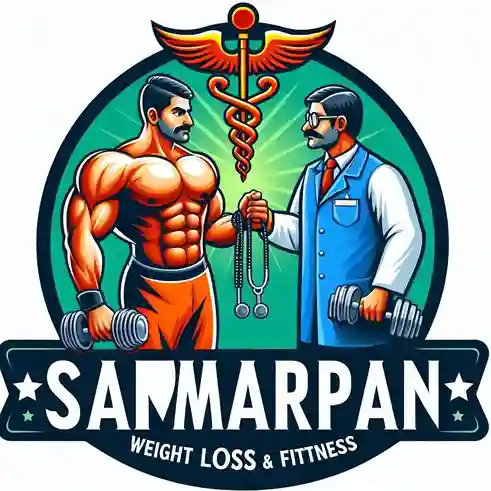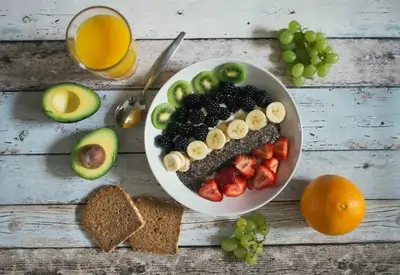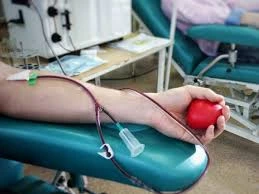What to Eat After Exercise For Weight Loss?
Introduction
While trying to reduce weight, there are several factors to consider while organizing a workout to assist you reach your goals. You’ve probably considered organizing your pre-workout food. However, have you considered what to eat to help you lose weight after working out? Otherwise, you may wish to.
As it happens, getting the right nutrients right after working out is equally as important as getting them before. For a comprehensive guide on how to maximize your post-workout meals, continue reading.
Your weight loss journey is greatly influenced by what you eat after working out. Refueling your body is only one aspect of it; other goals include maximizing your metabolism, encouraging muscle repair, and managing your appetite.
Why choosing proper post-workout foods are essential for weight loss?
Understanding how exercise impacts your body can help you better grasp how post-workout nutrition might aid in weight loss.
Glycogen, your body’s main fuel source, is used up by your muscles while you exercise, especially during vigorous sessions. Your muscles lose glycogen as a result. Additionally, certain proteins in your muscles may break down and sustain injury.
Your body tries to replenish its glycogen stores after working out. Additionally, it starts to rebuild and repair the damaged muscle proteins. Consuming the right nutrients after working out aids in the stimulation of new muscle growth in addition to speeding up the recovery of your muscle proteins and glycogen stores.
A healthy post-workout snack or meal is essential to maintaining the burn. Your body expends all of its energy during a workout, whether you’re doing strength and endurance training or cardio. As a result, after working out, it’s critical to adequately fuel your body with all the nutrients it requires. Most people only think about what they eat before working and exercise.
What exactly to eat to lose weight after working out?
A good post-workout meal or snack is crucial for maintaining your body’s health and aiding in weight loss. The following are a few post-workout meals you ought to include in your training schedule:
Water
Water is a crucial component of your post-workout meal even though it isn’t strictly a meal. Drinking enough water can guarantee that your body gets the most out of your exercise.
Sweating during exercise causes your body to lose water and electrolytes. Water consumption before, during, and after exercise can support both recovery and performance. For every pound you lose through perspiration, experts advise drinking 17–20 ounces of water two hours before working out, 7–10 ounces every 10–20 minutes while working out, and 16–24 ounces afterward.
Each person’s specific water intake requirements will differ based on:
- The amount of perspiration they produce
- The kind of exercise they perform
- How hydrated they are
- Other elements
Dairy protein
Dairy protein’s high-quality protein content and other advantageous elements make it an excellent choice for weight loss and post-workout recovery. The following explains why it’s a wise decision:
Types of Dairy Protein:
Whey protein: The watery part of milk contains this protein, which digests quickly. It’s great for accelerating muscle recovery following exercise.
Casein protein: The solid portion of milk (curd) contains this slow-digesting protein. It offers a steady supply of amino acids, which may help stop the breakdown of muscles.
Some dairy products high in protein besides milk include:
- Cottage cheese
- Greek yogurt
- Kefir
- Ricotta cheese
One cup of low-fat kefir contains 9.3g of protein. These proteins support the creation and repair of new cells, especially those found in your muscles. Additionally, they include vital amino acids that are only obtained through diet.
Although both soy and milk proteins aid in the development and maintenance of muscle mass, milk proteins are more effective in promoting the rapid growth of lean muscle mass.
Protein, carbohydrates, and fats
Every macronutrient—protein, carbohydrates, and fats—is involved in your body’s post-workout healing process. For this reason, having the right combination of them is crucial.
Protein
Protein aids in muscle growth and repair.
The amino acids your body requires for the repair and reconstruction of these proteins can be obtained by eating sufficient protein after working out. Additionally, it gives your body the building elements it needs to produce new muscle tissue.
Amongst the foods high in protein are:
- Eggs
- Cottage cheese
- Plant or animal-based protein powder
- Tuna
- Chicken
- Greek yogurt
- Tuna
- Protein bars
- Salmon
Carbs
Carbohydrates aid in the healing process. Your body uses its glycogen stores as fuel during exercise, and eating carbohydrates afterward helps you replace those levels.
The amount of glycogen stored in your body will depend on your exercise level. For example, endurance sports cause your body to utilize more glycogen than resistance exercise. You can need more carbohydrates if your training involves endurance sports like swimming, running, etc. than someone who works out with weightlifting.
Proper glycogen resynthesis can be achieved by consuming 0.5g to 0.7g of carbohydrates per pound of body weight within 30 minutes following training.
Foods that are high in carbs involve the following:
- Chocolate milk
- Sweet potatoes
- Fruits (i.e. banana, pineapple, kiwi, berries)
- Oatmeal
- Rice cakes
- Pasta
- Rice
- Edamame
- Potatoes
- Whole grain bread
- Quinoa and other grains
Fats
Not all fats are bad. Many people believe that eating fat after exercising slows digestion and prevents nutrient absorption. Fat won’t lessen the advantages of post-workout meals, but it might slow their absorption. For instance, research suggests that when it comes to encouraging growth in muscle following exercise, natural milk works better than skim milk.
According to other studies, eating a high-fat meal after working out does not affect the synthesis of muscle glycogen, even if the meal contains 45% energy from fat.
Especially the fats are:
- Nuts
- Seeds
- Avocado
- Trail mix (dried nuts and fruits)
- Nut butter
Simple foods you may try after working out
Following a workout, try these simple and quick meals:
- Cottage cheese with berries
- Avocado spread on toast with an omelet
- Scrambled eggs
- Berries and Greek yogurt
- Chickpea salad and edamame
- Quinoa with avocado, nuts, and dried fruit
- Pita and hummus
- Banana, almonds, and whey protein powder in pancakes
Ten foods to eat after working out that will speed up your recovery:
1. Pumpkin, broccoli, and grilled chicken
This dish combines vitamins from broccoli, complex carbs from Pumpkin, and lean protein from chicken. The protein aids in muscle growth and repair, the carbohydrates restore glycogen stores, and the vitamins promote healing and lower inflammation.
2. Salmon with quinoa and asparagus
Omega-3 fatty acids, which are abundant in salmon, aid in lowering inflammation and muscle discomfort. Asparagus delivers vital minerals and antioxidants for a better recovery, while quinoa offers a full protein supply.
3. Greek yogurt with berries and almonds
High in protein, Greek yogurt offers vital amino acids that aid in muscle regeneration. Almonds provide healthy fats and extra protein, while berries are high in antioxidants and help prevent muscle damage.
4. Eggs and avocado on homemade toast
Carbohydrates from whole homemade toast help to refuel energy reserves. While eggs supply protein and vital elements for muscle rehabilitation, avocados offer healthful fats and anti-inflammatory qualities.
5. Tofu fry with brown rice
Tofu has vital amino acids and is a good diet plant-based protein source. Vitamins, minerals, and antioxidants are provided by stir-fried vegetables, while brown rice provides complex carbohydrates for recharging energy.
6. The broccoli paired with bananas and peanut butter
For long-lasting energy, broccoli is an excellent source of fiber and carbs. Peanut butter offers protein and good fats, while the banana contributes potassium, which helps with muscular function and recuperation.
7. Chicken with quinoa and steamed vegetables
Chicken is a good diet fact of high-quality protein and vital elements including zinc and iron. Grains provide significant protein and carbohydrates, meanwhile steaming veggies provide vitamins and fiber.
8. Cottage cheese with pineapple and walnuts
Casein, a slow-digesting protein that promotes muscle repair, is included in cottage cheese, making it a protein-rich choice. Walnuts offer extra protein and good fats, while pineapples include the enzyme bromelain, which helps lower inflammation.
9. Vegetables and whole wheat bread
Wheat bread is a lean protein that is perfect for rebuilding muscles. Although vegetables offer vitamins, minerals, and fiber for a better recovery, whole wheat tortillas supply carbohydrates.
10. Lentil soup with whole grain bread
One organic supplier of iron, carbs, and nutrition is lentils. The soup provides a blend of minerals and antioxidants for better recuperation, while the whole-grain bread contributes extra carbohydrates. Dal and roti could alternatively be used in place of this.
Throughout the recuperation phase, these meals provide a balance of slow-digesting and quick-digesting nutrients, guaranteeing long-lasting energy release and muscle restoration.
Wrapping Up
Weight-loss post-workout meals don’t have to be bland and uninteresting. Simply concentrate on the nutrition that will help you reach your objective, mix foods from different nutrient lists, and try preparing them in different ways to create your favorite combinations to keep things interesting.
Just keep in mind that you should prioritize obtaining adequate protein after working out, but don’t overlook high-quality fat and carbohydrates.
For the best post-workout protein powders for weight loss, such as Ripped Whey Protein, Scitron is a great option.
The Greatest Foods to Consume Following Exercise
The majority of people who finish an hour-long or shorter workout don’t require a special recovery diet if they plan to consume a snack or meal that has a combination of protein and carbs in the moments after their activities. However, some people ought to be more mindful of their diet after working out.
After rigorous strength training or endurance exercises (such as a 90-minute bike ride or weightlifting session) or when an athlete trains several times in a single day, “recovery nutrition” is typically the most crucial.
Eating protein and carbs within an hour or so of doing out is best in these situations, as well as for anyone who feels extremely hungry or exhausted after working out. The time following your exercise session is when your system uses protein most efficiently for both preventing the breakdown of your current muscles and building new ones. We call this method muscle protein production. Your body also needs carbs after a workout to replenish the muscles’ stored glycogen, which helps power subsequent workouts.
What might a nutritious post-workout snack look like?
A glass of chocolate milk, which contains 24 g of carbohydrates and 8 g of protein, is a fantastic post-workout recovery drink since it is a good general rule to aim for a snack that has at least 10 g of protein and double or triple that amount of carbohydrates. After a vigorous aerobic or endurance activity, increase your intake of carbohydrates slightly, and after a strength-training session, increase your intake of protein slightly.
Conclusion
Putting it all up, eating the correct nutrients after working out is essential to maximizing your fitness progress. You may get the most out of your workouts by emphasizing protein for muscle repair, complex carbs for energy replenishment, and healthy fats for general well-being.
These benefits are further enhanced if you time your post-workout nourishment within a window of one to two hours. Keep in mind to drink enough water and stay away from processed and sugary foods in favor of whole, unprocessed ones. Making wise decisions regarding your diet after working out will help you achieve your fitness objectives while also enhancing your general health and well-being.
If you enjoy working out in the evening or late at night, you have a few dining options. Nuts, seeds, egg salad, hummus, vegetables, and any other item high in protein can be consumed.
Restoring the energy you expend during your workout is crucial. You can replenish your energy and repair your muscles by eating a snack that is lower in portion size, high in protein, and won’t trigger any symptoms of acid reflux.
FAQs
What is the ideal post-workout meal to help you lose weight?
Real foods that offer a combination of fat, protein, and carbs should be your main emphasis if you require a meal after working exercise. Here are some excellent post-workout meal options: Hummus and vegetables with a dash of olive oil on top. Rice, veggies, and grilled chicken
Can I eat half an hour after working out?
During the first 30 to 45 minutes following a workout, refueling with a snack or meal that includes a balance of carbohydrates and protein, along with healthy fats, can help repair muscle tissue and replace muscle glycogen stores, supporting muscular gains and improving performance in subsequent sessions.
If you work out after eating, will you still lose weight?
Walking at a brisk pace for 30 minutes as soon as possible after lunch and dinner results in greater weight loss for people who do not experience fatigue, abdominal pain, or other discomfort when walking right after a meal than walking for 30 minutes starting an hour after a meal has been consumed.
After working out, what should I eat?
Make an effort to eat both carbohydrates and protein. Carbohydrates replenish energy stores, whereas protein aids in muscle tissue repair and reconstruction.
What foods are healthy to eat after working out?
Greek yogurt with fruit
Protein smoothie
Hard-boiled eggs with whole-wheat toast
Tuna salad sandwich on whole-grain bread
Chicken breast with roasted vegetables
Oatmeal with protein powder and berries
How much food should I have after working out?
Your specific needs and the intensity of your workout will determine how much you need to consume. Generally speaking, you should eat between 20–30 grams of protein and 30–40 grams of carbs.
Why is it necessary to eat after working out?
Eating after working out aids in muscle healing, energy restoration, and soreness reduction. This can help you reach your weight loss objectives and enhance your general performance.
References
- HealthMatch staff & HealthMatch Pty Ltd. (2022, May 12). What to eat after a workout to lose weight — foods to eat and avoid post-workout. HealthMatch. https://healthmatch.io/weight-management/what-to-eat-after-workout-to-lose-weight
- Rd, A. S. M. (2024, June 17). What to Eat After a Workout for Nutrition and Muscle Recovery. Healthline. https://www.healthline.com/nutrition/eat-after-workout
- (INDIA) PVT. LTD., S. N. (2023, January 6). 5 Post-Workout Meals To Make Weight Loss A Breeze. Scitron. https://scitron.com/blogs/blog/post-workout-meal-for-weight-loss?srsltid=AfmBOop-gKtX8wObGK9GphXEqVvJUfl3erjSo2Zp5mqECs62oObYHGRw
- Make the most of your workout by knowing what – and when – to eat. (n.d.). Mayo Clinic. https://www.mayoclinic.org/healthy-lifestyle/fitness/in-depth/exercise/art-20045506
- Eckelkamp, S. (2024, May 31). What to Eat Before and After Your Workout. EverydayHealth.com. https://www.everydayhealth.com/fitness/what-eat-before-after-your-workout/
- Eating Tips Before and After Exercise | ADA. (n.d.). https://diabetes.org/health-wellness/fitness/eating-tips-before-after-exercise
- myDr.com.au. (2024, January 11). What Are The Best Foods to Eat While Working Out to Lose Weight? https://mydr.com.au/nutrition-weight/the-best-foods-to-eat-while-working-out-to-lose-weight/




